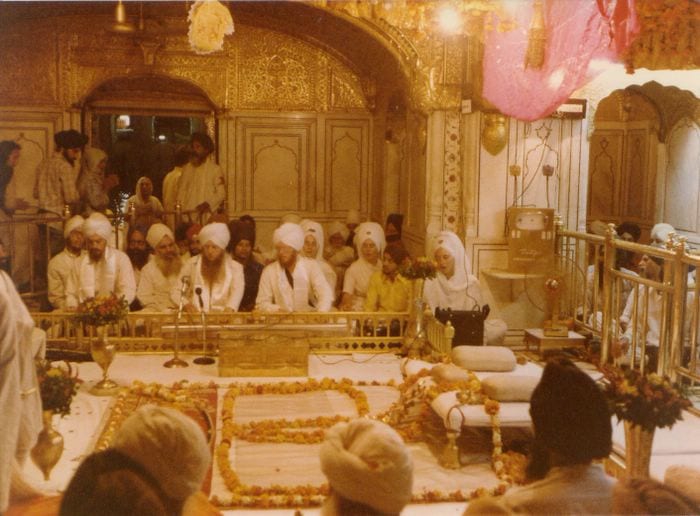ਕੰਸੁ (kaňs)
Meaning: noun: Kans, a tyrant ruler of Mathura and the maternal uncle of Krishna.
Quote:
ਕੰਸੁ ਕੇਸੁ ਚਾਂਡੂਰੁ ਨ ਕੋਈ॥ ਰਾਮੁ ਨ ਚੀਨਿਆ ਅਪਨੀ ਪਤਿ ਖੋਈ॥
kaňs kes chaaṅḍoor na koee. raam na cheeniaa apnee pat khoee.
Kans, Kesi, and Chandoor had no equals. (But due to their egoism) they did not acknowledge the Divine and lost their honour. – Guru Nanak Sahib, Guru Granth Sahib, 224
Message: The greater one’s pride, the more heavily one falls
In this verse above, reference is made to the wickedness and vanity of Kans, and two of his wicked warriors.
Kans was the son of Ugrasen, the king of Mathura, whom he deposed and whose throne he usurped with the help of his father-in-law, Jarasandh.
Kans wanted to kill Krishna. He sent several demonic warriors, but none of them could harm him. Then he invited Krishna to Mathura and engaged Chandoor or Chandura, a powerful warrior, to kill him.
However, Krishna killed Chandura, and afterwards killed Kans also. Likewise, Kesi, another warrior of Kans, was killed by Krishna.
Even the strongest and mighty are ruined when they forget the Divine and fall in the trap of arrogance and conceit. The Creator has His own ways to punish our wickedness and vanity. Why not be humble and keep away from evil tendencies?
Watch video here: https://vimeo.com/146964726
Summary of the Week:
Several examples from legends above are enough to show us the terrible consequences of indulging in egoism and pride.
The real question however is, how do we save ourselves from the affliction and impact of this vice on our own life and that of others around us?
Pride, conceit, arrogance and other such vices cannot be overcome without the guidance of the Guru.
It is by following the Guru’s instructions that we obtain the necessary awareness about our fickle and stubborn mind and its negative behaviour and tendencies.
Really understanding the mind and self, helps us to cultivate required virtues, such as righteousness, contentment and humility, to combat our self-centeredness.
Only when we develop these attributes and emulate them consciously in our daily life can the malady of egoism be cured.
If only there were evil people somewhere insidiously committing evil deeds and it were necessary only to separate them from the rest of us and destroy them. But the line dividing good and evil cuts through the heart of every human being, and who is willing to destroy a piece of his own heart? -Alexander Solzhenitsyn, novelist, Nobel laureate, 1918-2008




